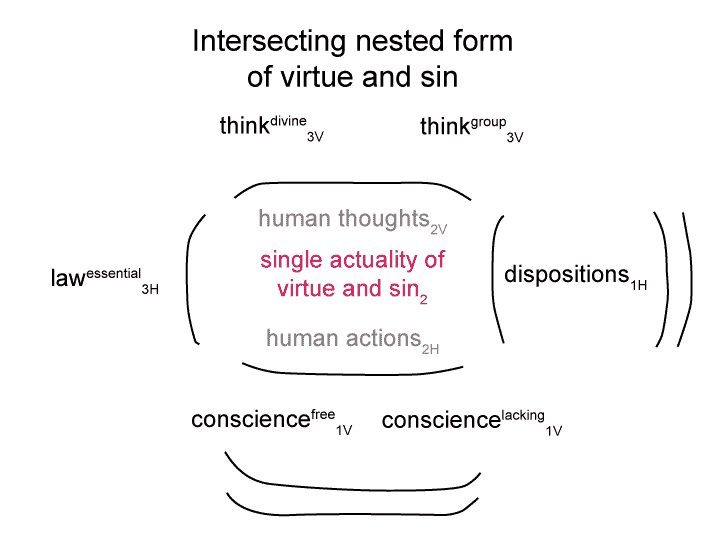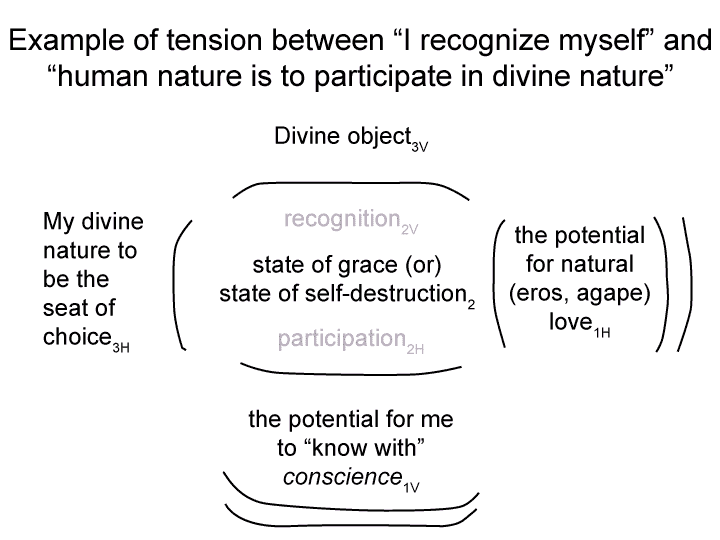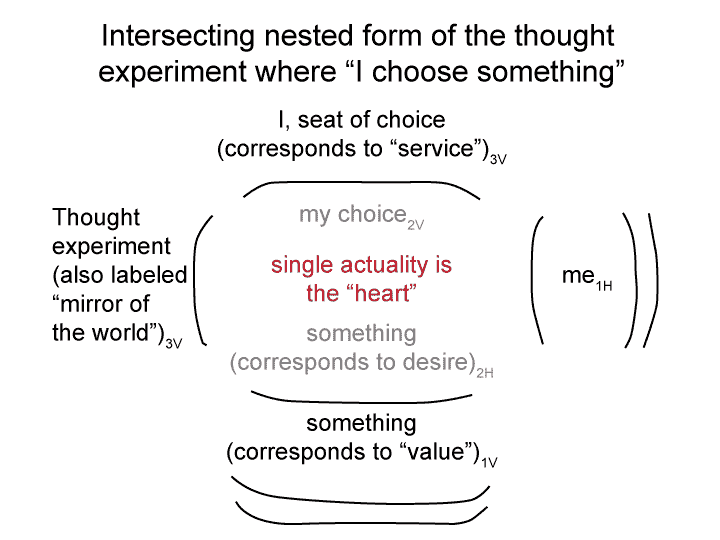Man and Sin by Piet Schoonenberg (1964) 2.3 FL
Summary of text [comment] page 83
[Schoonenberg moved to another facet of virtue and sin.]
According to Paul, sin rules in “man” and over “man” through concupiscence.
Schoonenberg quoted Paul’s Letter to the Romans 7:17. His sinful deeds “are not done by I, but by the sin that dwells in me.”
Paul is in bondage to a sinful attitude that renders him powerlessness.]



